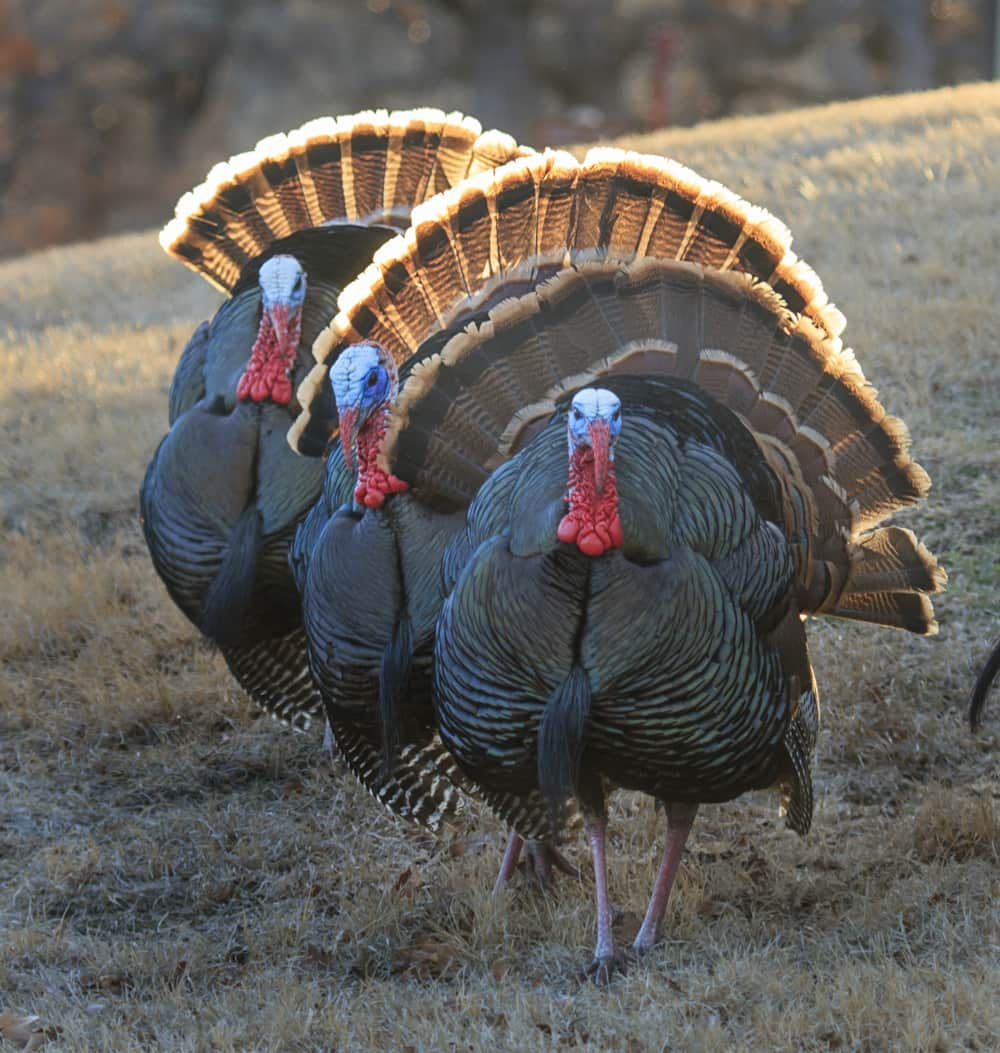Turkey Hunters: Are You Prepared for Avian Flu?
OutdoorHub Reporters 04.17.15

With the approach of turkey season, state wildlife agencies like the Minnesota Department of Natural Resources (DNR) are warning hunters to take extra precautions when harvesting turkeys. This is due to avian flu, a highly contagious and deadly virus that is capable of infecting both wild and domestic birds. Although avian flu has not yet been confirmed in wild turkeys, a recent outbreak among farmed turkeys in Minnesota has resulted in the euthanization of more than half a million birds. Avian flu can also be spread by other wild birds such as Canada geese.
“Turkey hunters can take steps to minimize the risk of spreading highly-pathogenic avian influenza (HPAI), and they can be excellent scouts in helping identify wild birds like raptors or turkeys that could have been affected,” Michelle Carstensen, wildlife health program supervisor with the Minnesota Department of Natural Resources, said in a press release.
The US Department of Agriculture has made the following checklist of steps that hunters should take when in the field or at home. These steps are especially recommended near areas where avian flu has affected farm bird populations.
In the field
- Do not harvest or handle wild birds that are obviously sick or found dead.
- Dress your game birds in the field whenever possible.
- Use dedicated tools for cleaning game, whether in the field or at home. Do not use those tools around your poultry or pet birds.
- Always wear rubber gloves when cleaning game.
- Double bag the internal organs and feathers. Tie the inner bag, and be sure to take off your rubber gloves and leave them in the outer bag before tying it closed. Place the bag in a trash can that poultry and pet birds cannot access. This trash can should also be secure against access by children, pets, or other animals.
- Wash hands with soap and water immediately after handling game. If soap and water are not available, use alcohol wipes.
- Wash all tools and work surfaces with soap and water. Then, disinfect them. Do not eat, drink, or smoke while cleaning game.
At home
- If you clean a bird at home, keep a separate pair of shoes to wear only in your game cleaning area. If this is not possible, wear rubber footwear and clean/disinfect your shoes before entering or leaving the area.
- Wash all tools and work surfaces with soap and water. Then, disinfect them.
- Avoid cross-contamination. Keep uncooked game in a separate container, away from cooked or ready-to-eat foods.
- You should always cook game meat thoroughly; poultry should reach an internal temperature of 165 degrees Fahrenheit to kill disease organisms and parasites.
According to the New York Times, the latest avian flu outbreaks occurred in December and have now been confirmed in British Columbia, Washington, Oregon, Idaho, Arkansas, California, Minnesota, Missouri, and South Dakota. Both wild and domestic populations are believed to be affected, and some officials suspect that the disease was introduced to the United States by migrating Canada geese, which can transmit the disease to other birds through their droppings.
Avian flu does not usually affect humans, and officials say that contracting the disease from wild birds is very rare. However, symptoms of infection in humans can range from mild to severe. The virus is known to cause a flu-like illness with a chance of severe respiratory problems such as shortness of breath and viral pneumonia. In the rare cases, it can lead to death.
In turkeys, infection is almost always a death sentence. The virus is fast-acting and can spread through entire flocks in a matter of hours. One Minnesota farm quarantined 2,000 turkeys after signs of the disease showed up. Within 48 hours, only 20 birds were left alive.
State wildlife agencies are encouraging hunters to report any sick birds that they see, including those with swollen wattles, discoloration of the feet, or odd behavior. Hunters can mark the location of the bird by GPS and contact their local DNR or Game and Fish office.

